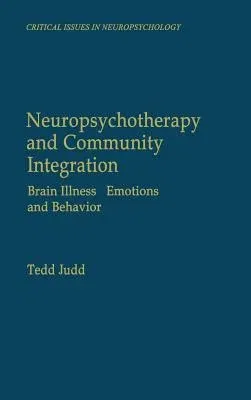Tedd Judd
(Author)Neuropsychotherapy and Community Integration: Brain Illness, Emotions, and Behavior (1999)Hardcover - 1999, 31 July 1999

Qty
1
Turbo
Ships in 2 - 3 days
In Stock
Free Delivery
Cash on Delivery
15 Days
Free Returns
Secure Checkout

Part of Series
Critical Issues in Neuropsychology
Part of Series
Critical Issues in Neuropsychology Critical Issues in Neurop
Print Length
371 pages
Language
English
Publisher
Springer
Date Published
31 Jul 1999
ISBN-10
0306461706
ISBN-13
9780306461705
Description
Product Details
Author:
Book Edition:
1999
Book Format:
Hardcover
Country of Origin:
US
Date Published:
31 July 1999
Dimensions:
23.22 x
16 x
3.3 cm
ISBN-10:
0306461706
ISBN-13:
9780306461705
Language:
English
Location:
New York, NY
Pages:
371
Publisher:
Series:
Weight:
712.14 gm